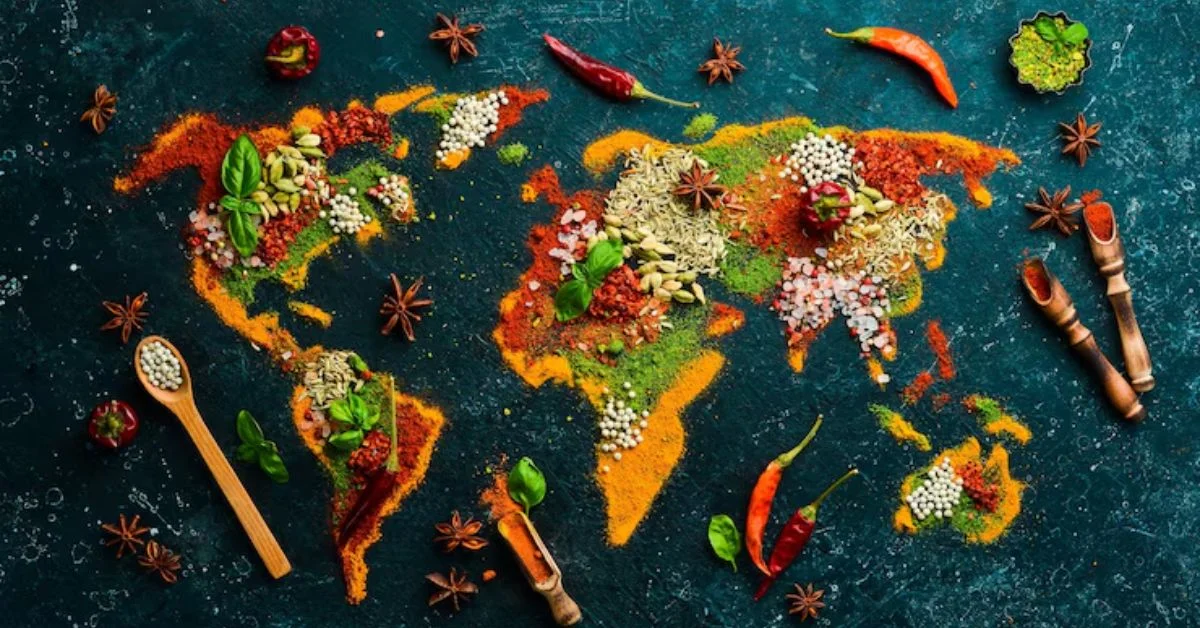In a hyperconnected world, where culinary trends cross borders with viral speed, food is more than sustenance—it’s storytelling. Oneworldplate.com emerges as a digital reflection of that philosophy, blending cultural journalism, recipe curation, and global food anthropology into a singular experience. For the reader hungry not just for flavor but for understanding, this platform offers a modern-day almanac of the world’s kitchens.
A Taste of the Mission
Oneworldplate.com was born from a simple but profound question: what can we learn about each other through the plate? The website isn’t just another recipe aggregator. It delves deep into the traditions, rituals, migrations, and narratives that surround the world’s most iconic and overlooked dishes.
Through long-form features, editorial essays, and field-based storytelling, the platform aims to do more than provide cooking instructions. It presents food as a cultural document—a way to understand identity, geography, and history.
Bridging Borders With Ingredients
From the spice-laden curries of Kerala to the fermentation traditions of Korean jang, Oneworldplate.com illuminates how common ingredients express themselves differently across continents. Each article is meticulously researched, blending field interviews with historical context and present-day applications.
Some of the stories readers may encounter include:
- The evolution of tamarind: from West African stews to Filipino sinigang.
- Breadmaking through war: how conflict shaped Middle Eastern flatbreads.
- Chili peppers and diaspora: tracing the spice trail from the Americas to Southeast Asia.
These narratives are not just instructive but deeply humanizing, offering insight into the challenges, celebrations, and migrations that have flavored global cuisine.
Recipes as Cultural Artifacts
While Oneworldplate.com does offer recipes, they come with more than ingredient lists. Each recipe is treated as a primary source—a story, a tradition, a point of contact between generations. The emphasis is on authenticity, but not in the gatekeeping sense. Rather, the recipes highlight variations across households, regions, and diasporas.
Take, for example, their feature on Nigerian jollof rice. Instead of declaring a “correct” version, the article showcases Senegalese origins, Ghanaian spice profiles, and the home-cooked Nigerian method that has sparked countless debates and celebrations across the internet.
Voices From the Global Table
A central ethos of Oneworldplate.com is decentralizing who gets to tell food stories. The platform prioritizes voices from within communities, featuring essays by home cooks, chefs, food historians, and diaspora writers. This intentional editorial strategy ensures that cultural nuance is preserved and that stories are told with the complexity and dignity they deserve.
This editorial choice disrupts the traditional food media model, where outside perspectives often dominate. Here, the subjects of the stories are also the narrators, reclaiming their culinary heritage in the process.
Food and Social Justice
Food is inherently political. It intersects with issues like labor rights, climate change, land ownership, and colonial history. Oneworldplate.com doesn’t shy away from these topics. Instead, it positions them at the core of its content strategy.
Recent features include:
- “Seeds of Resistance”: Indigenous food sovereignty movements in North America.
- “Rice and Revolution”: The role of communal meals in Filipino resistance movements.
- “The Bitter Crop”: How sugar shaped and still affects Caribbean economies and communities.
These pieces go beyond culinary fascination, offering readers a fuller, more honest picture of global food systems.
The Language of the Plate
Language is another critical aspect of Oneworldplate.com‘s work. Each recipe or story includes original names, contextual notes on pronunciation, and translations that honor the linguistic heritage of each dish.
For example, an article on Persian cuisine will explain the significance of “sabzi” (greens/herbs) and “tahdig” (crispy rice crust), showing how even the naming of ingredients conveys values around abundance, family, and patience.
Food in Flux: Diaspora and Hybridity
With mass migration and globalization, dishes often transform as they travel. Oneworldplate.com embraces hybridity rather than resist it, celebrating the creativity of diasporic kitchens.
Features under this theme include:
- Korean-Mexican tacos and their roots in Los Angeles street food culture.
- East African influences on Yemeni cuisine along the Indian Ocean.
- How Trinidadian roti reflects South Asian, African, and Caribbean culinary syntheses.
These hybrid stories show how food can serve as both memory and innovation, resilience and reinvention.
Educating the Next Generation
For younger audiences and aspiring cooks, Oneworldplate.com offers a variety of educational tools:
- Glossaries of global ingredients and their cultural significance.
- Interactive maps that show the migration paths of key dishes.
- Video explainers featuring elders and artisans preparing food in traditional methods.
The goal is not only to teach recipes but to pass down wisdom, memory, and respect.
Community Engagement and Reader Contributions
Unlike many editorial platforms, Oneworldplate.com actively invites reader participation. Home cooks from around the world contribute their family recipes, cooking anecdotes, and regional knowledge. There’s a sense of collective authorship, where the community shapes the archive.
Monthly themes—such as “Winter Stews,” “Heritage Breads,” or “Festive Ferments”—encourage submissions that become part of a living, breathing cultural record.
Conscious Consumption
Beyond taste, the platform urges readers to ask deeper questions about their food:
- Who grew it?
- Under what conditions?
- What histories are embedded in its preparation?
- What ecosystems are impacted by its production?
This call to conscious consumption aligns with a broader shift in global food discourse. Through practical guides, like “How to Start a Community Garden” or “Understanding Fair Trade Labels,” the site empowers readers to make informed, ethical choices.
Global Holiday Series
One of the most celebrated series on Oneworldplate.com is its “Global Holidays Through Food” collection. From Diwali sweets in Gujarat to Ramadan breakfasts in Cairo, these stories reveal how food rituals bind families and communities, often across political and geographical divides.
It’s storytelling at its most intimate and universal.
Tech Meets Tradition
While rooted in tradition, Oneworldplate.com embraces modern technology. They’ve developed an app that allows users to:
- Create global shopping lists with substitution suggestions.
- Access video tutorials from native speakers.
- Tag family members in recipe archives, creating intergenerational digital cookbooks.
This integration of tech serves not to replace tradition, but to preserve and adapt it.
The Future of the Table
Looking forward, Oneworldplate.com aims to expand its community journalism model, launching multilingual editions, local food festivals, and audio documentaries. There’s a recognition that food media must evolve, decentralize, and respond to a rapidly shifting world.
Its upcoming initiatives include:
- Youth Storytelling Fellowships for culinary writers from underrepresented communities.
- The Food & Memory Archive, a digital oral history project collecting voices from refugee and immigrant kitchens.
- Sustainable Kitchens Lab, offering resources for low-waste, high-flavor cooking around the globe.
Final Thoughts: More Than a Meal
Oneworldplate.com is not a niche blog. It’s a cultural institution in digital form, a place where memory, migration, and meaning come together over meals. It appeals to food lovers, yes, but more importantly, it calls to those who believe that behind every bite lies a story worth telling.
By placing emphasis on inclusivity, accuracy, and integrity, Oneworldplate.com transforms food writing into a form of social journalism. It respects the plate not just as a site of flavor but as a site of history, identity, and possibility.
So next time you stir a pot or pass around a dish, consider the hands and histories that brought it to your table. That’s the invitation of Oneworldplate.com: to eat, to listen, and to learn.
For more information, click here.









